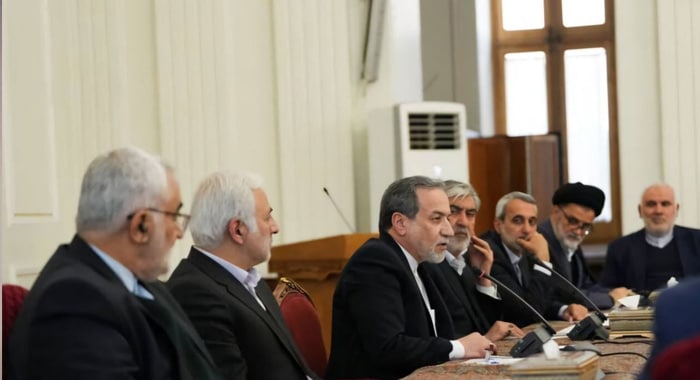Iran has warned of a “severe” and uncompromising response should the three European signatories to the 2015 nuclear deal—Britain, France, and Germany—invoke the snapback mechanism to reinstate United Nations sanctions, a move Tehran says would shatter ongoing diplomatic efforts and threaten regional stability.
Foreign Minister Abbas Araqchi issued the warning during a closed-door briefing to Parliament’s National Security and Foreign Policy Commission, amid intensifying talks between Iran and the United States over the revival of the Joint Comprehensive Plan of Action (JCPOA). He stressed that while Iran remains firmly committed to diplomacy, it will not tolerate what it sees as the politicised misuse of UN Security Council Resolution 2231, which underpins the nuclear accord.
“Any activation of the snapback clause will be met with a severe response,” Araqchi declared, according to commission spokesperson Ebrahim Rezaei. “Iran has never walked away from negotiations, but will not yield to pressure or blackmail.”
The October 18 deadline for the European trio—known as the E3—to trigger the snapback clause looms large as indirect negotiations between Tehran and Washington show no signs of a breakthrough. Araqchi reiterated that Iran’s position remains clear: it will not accept negotiations under coercion and will consider withdrawal from the Nuclear Non-Proliferation Treaty (NPT) if international sanctions are reimposed.
Araqchi, who has led five rounds of backchannel diplomacy with U.S. special envoy Steve Witkoff—three in Muscat and two in Rome, with the mediation of Oman’s Foreign Minister Sayyid Badr Al-Busaidi—emphasised that talks remain focused solely on nuclear issues. He dismissed any suggestion of regional disarmament or restrictions on Iran’s enrichment program, underscoring that enrichment is Iran’s sovereign right under the NPT.
While Araqchi welcomed the idea of a regional enrichment centre, he categorically rejected halting enrichment inside Iran. “We will never accept conditions dictated by others,” he said, pointing to Israel as the principal actor lobbying against Iran’s right to enrich uranium. “Israel is fundamentally opposed to any enrichment on Iranian soil and is working to sabotage the talks.”
He further cautioned that any escalation could have sweeping consequences beyond Iran’s borders: “All countries in the region will suffer if war erupts.”
Rezaei noted growing scepticism among lawmakers, with some questioning the value of continued engagement with Washington given the steady stream of new U.S. sanctions imposed even during negotiations. Still, Araqchi maintained that Tehran is negotiating in good faith but without compromise on its core interests.
U.S. envoy Witkoff has reportedly conveyed that Washington will not accept any Iranian enrichment activity in a successor agreement to the JCPOA—an ultimatum dismissed by Iran’s top leadership. Supreme Leader Ayatollah Seyyed Ali Khamenei has labelled the American demand “excessive and outrageous,” asserting that such positions confirm Iran’s long-held suspicion that negotiations with the U.S. are unlikely to produce equitable results.
Despite mounting pressure, Iran insists that its enrichment activities are entirely peaceful and within the bounds of international law.
“The JCPOA cannot be revived through threats,” Araqchi concluded. “If diplomacy is to succeed, it must be grounded in mutual respect—not ultimatums.”





